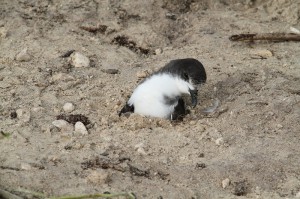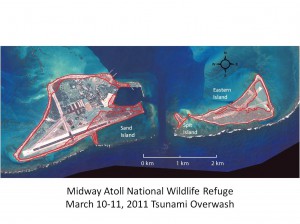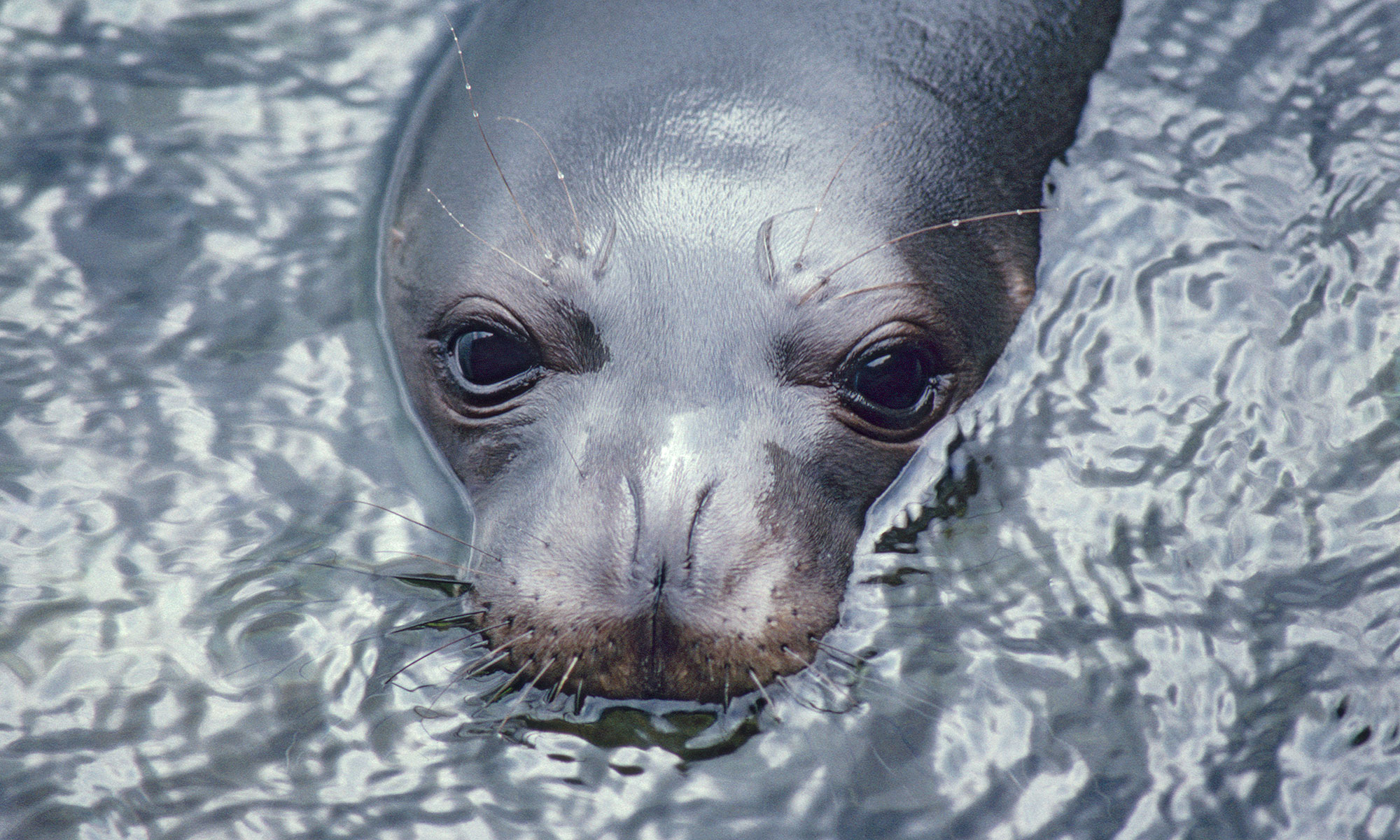
The US Fish and Wildlife Service (FWS) has provided details of the severe impact to wildlife of the Japanese tsunami, as it rolled over the islands comprising Midway Atoll on Thursday March 10th.
A news release issued by FWS states: “Fortunately, Midway residents received approximately 4 hours of advanced warning and successfully implemented its tsunami emergency plan. All essential infrastructure and equipment were secured and all staff, contractors, and visitors evacuated to the third floor of the Charlie Hotel. Fortunately, no one was injured and no major damage occurred to the island’s infrastructure. Debris washed onto the airfield which caused its temporary closure for less than 24 hours.
The Short-tailed albatross nest was washed over again, but the chick was found unharmed about 35 m away and returned unharmed to its nest area. A minimum of 1,000 adult/subadult and tens of thousands of Laysan Albatross chicks were lost. Thousands of Bonin petrels were buried alive. Spit Island completely washed over. Eastern and Sand Island were 60% and 20% washed over, respectively. Thousands of dead fish were found in the interior of Eastern. Two live green turtles were rescued from the middle of Eastern. The impacts on Laysan ducks and monk seals are unknown.”

The personal Midway blog of FWS biologist Peter Leary describes bird deaths as being in the tens of the thousands, and also details the extraordinary rescue efforts that were mounted by Midway staff and volunteers to rescue wildlife in distress.
On a more promising note, Leary states that “At least we didn’t find any injured Hawaiian monk seals or Laysan ducks. The seals were back resting on the beaches on Friday.”
Meanwhile, the French Frigate Shoals blog of researchers camped out at Tern island indicates that the tsunami’s impact to wildlife may have been negligible there. A post dated March 11 states: “As I mentioned last night and this morning, we were very fortunate to have had no real effects from the tsunami on Tern. We have a nice big atoll around us, which serves a a wonderful buffer, for which we are very grateful. Kure, Midway and Laysan were not so fortunate — the wildlife were really hammered there….”
